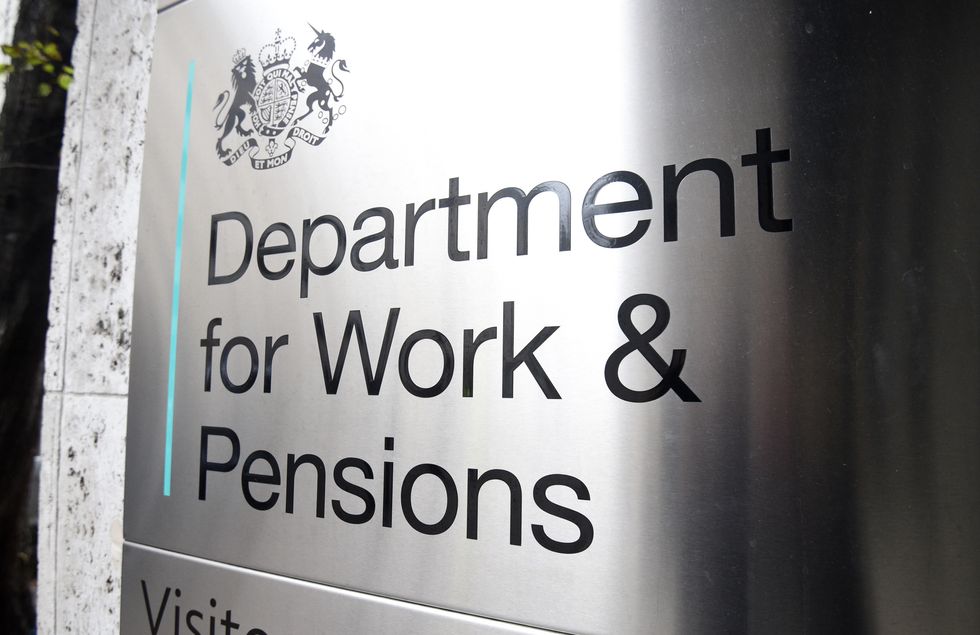State pension warning: Millions unaware of major change set to 'push older people into poverty'

State pension age rise ‘almost inevitable’: Ann Widdecombe issues warning as Denmark raises the bar |
GBNEWS

The retirement age is set to rise again from 66 to 67 between 2026 and 2028
Don't Miss
Most Read
Latest
Millions of older people could be pushed into poverty under upcoming pension changes, experts have warned, with women expected to bear the brunt.
Analysts say shifts to the state pension age will leave thousands struggling to make ends meet in later life.
The state pension age for women rose from 60 to 65 between 2010 and 2018, bringing it in line with men. It is now 66 for both genders and is set to rise to 67 between 2026 and 2028. In the mid-2040s, it is expected to rise again to 68.
But the Institute for Fiscal Studies (IFS) has cautioned that these changes will drive many into financial hardship, particularly women who are disproportionately affected by the increases.
Research conducted by Schroders Personal Wealth has also uncovered that more than half of British adults remain completely uninformed about significant state pension reforms taking effect from next year. The revealed that 51 per cent had no awareness whatsoever of the upcoming changes.
Among the most significant reforms is the scheduled increase in state pension eligibility age from 66 to 67, which will be phased in between 2026 and 2028.
The Institute for Fiscal Studies has cautioned that these adjustments will force more elderly people into financial hardship. The research also exposed a lack of understanding about other pension modifications scheduled for implementation.
These include new regulations that will incorporate pensions into inherited estates starting in 2027, as well as an increase in the minimum age for accessing tax-free pension withdrawals, which will rise from 55 to 57 in April 2028.

Only 15 per cent of those surveyed reported they "fully understood" the tax regulations
| GETTYOnly 15 per cent of those surveyed reported they "fully understood" the tax regulations surrounding pension inheritance and had arranged their finances accordingly.
This is particularly concerning given that 29 per cent of respondents indicated they intended to leave some or all of their pension savings to family members or beneficiaries.
The IFS has issued stark warnings about the poverty implications of these pension age increases, noting that women will bear a heavier burden than men from the reforms.
Deputy Director and Head of Retirement, Savings and Ageing at the IFS, Jonathan Cribb, told the Financial Times: “We’ve identified that the increase in the state pension age that’s happened more recently has had larger impacts on poverty than the previous increases that happened in the 2010s.

The IFS has issued stark warnings about the poverty implications of these pension age increases
| PA"More recently, increasing the state pension age pushed up poverty by about 14 percentage points for 65-year-olds, compared to pushing it up by about six percentage points for women in their early 60s.
"As you push the state pension age up, you affect a group of individuals who are less likely to be in work and more likely to be relying on the state for their income.
"So when you are pushing the state pension age from 60 to 61, most people are actually still in work at that point, meaning they can support themselves through income from labour as well as a state pension.
"As you get into your late 60s, that’s much less the case, and therefore pushing up the state pension age further pushes up poverty by a higher amount."
Financial planning experts stress that these modifications extend beyond mere administrative adjustments.

The state pension eligibility age is set to increase further to 68 during the mid-2040s
| GETTYAlex Gaita, director of financial planning at SPW, described the changes as "deeply personal," explaining they "affect when people can stop working, how much they can afford to spend, and what they can leave behind."
The state pension eligibility age is set to increase further to 68 during the mid-2040s, compounding concerns about financial security for future retirees.
Former pensions minister Sir Steve Webb, now a partner at consultancy LCP, identified the 2028 increase in the minimum pension access age as a "real cliff edge" for financial planning purposes.
He acknowledged that "there are some changes to the pensions landscape where final decisions have been taken, which have a direct effect on consumers, and where public awareness is still at a low level."
Rob Morgan, chief analyst at investment manager Charles Stanley, attributed the knowledge gap to the complexity of the state pension system.
He observed that "the state pension is a particular blind spot, since it's rather complicated, and people simply don't believe they need to even consider it until much older."
More From GB News










